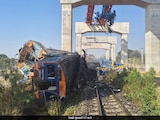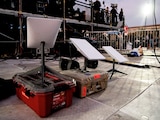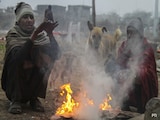Prime Minister Narendra Modi has credited India's "stunning success in vaccinating its people" to the country being atmanirbhar or self-reliant, adding that he made sure that technology formed the backbone of the vaccination process. On the question of negative press about his decisions, the Prime Minister said he attaches "big importance" to criticism.
"Imagine if our country had not come up with a vaccine. What would be the situation? We know that a large population of the world doesn't have access to Covid vaccines. Today, our success in vaccination is thanks to India being atmanirbhar," PM Modi said in an interview to Open magazine.
Sixty-nine per cent of the country's adult population has received at least one dose of COVID-19 vaccine and 25 per cent has taken both doses, the government said earlier this week. It aims to inoculate all eligible population by December-end.
PM Modi said most people only level allegations as they lack the time to study the issue, while criticism is rooted in research.
"I, with an honest mind, respect critics a lot. But, unfortunately, the number of critics is very low. Mostly, people only level allegations, the people who play games about perception are more in number. And the reason for this is that , for criticism, one has to do a lot of hard work, research and, in today's fast-paced world, may be people don't have time. So sometimes, I miss critics," he added.
"We need to look at the entire logistics, planning and progress to understand the success of the vaccine drive. It is a huge effort with so many people mobilised across the country. I hope the media will take time out to highlight the efforts of our people in making the world's largest vaccination drive a stunning success," the PM told the magazine.
The Prime Minister spotlighted how at a science conference a few years ago he suggested it was time to move away from "Jai Jawan, Jai Kisan, Jai Vigyan" and work on the mantra of "Jai Jawan, Jai Kisan, Jai Vigyan, Jai Anusandhan (research)". He said his government gives top priority to research.
"We started planning for the vaccination drive right in May 2020 when no vaccine was even close to approval anywhere in the world. We had decided as early as then that we did not want this vaccination drive to run in the old way where it could take decades to vaccinate people. We wanted this to run in a fast, efficient, discretion-free and timebound manner," said the Prime Minister.
Two vaccines for coronavirus: Covishield, which has been developed by British-Swedish pharmaceutical company AstraZeneca is manufactured in India by Pune-based Serum Institute of India, and Covaxin, developed by homegrown Bharat Biotech, received emergency approval from the country's drug regulator at the start of this year.
Elaborating his point, the Prime Minister said the poor today does not have to wait or pay a bribe to avail services he deserves. A poor migrant, said PM Modi, can take his second dose of vaccine in the city he works in, even if he took the first dose in his village. Technology ensures he gets the right vaccine at the right time and seamlessly, the Prime Minister said.
"When we compare India's situation in the world, we have done better than many developed countries. However, we have in our midst vested interests whose only aim is to tarnish India's name. COVID-19 was a global scourge with all countries equally affected. In this scenario, India has done better that its peers and many developed countries, notwithstanding such negative campaigns," he said.
Reeling off numbers and his government's focus on healthcare, the Prime Minister said from six All India Institute of Medical Sciences (AIIMS) in 2014, the nation is now building 22 such institutes; from 380 medical colleges in 2014, there are now around 560 such colleges. The government is also working on launching a massive scheme to boost health infrastructure that will address a lot of legacy issues, said the Prime Minister.
"We are actively focusing on preventive healthcare. From improved sanitation to water supply, from yoga to Ayurveda, from strengthening diagnostic centres in remote areas, we are doing it all," he stressed.
PM Modi credited the country for its ability to unite, come together and deliver in this hour of grave crisis.
"From being a net importer of PPE kits, we have now become one of the biggest manufacturers across the globe. Similarly, we not only managed to exponentially increase the number of ventilators but also did so largely through domestic manufacturing. India achieved this despite limited global knowledge about the virus, the economic impact of lockdown and existing state capacity constraints. Is there any better evidence of our ability to bring transformative change?" asked PM Modi.
On the criticism against the banging of thalis and lighting diyas, the Prime Minister said there was a need to boost the morale of healthcare and frontline workers. He said the event turned into a big mass movement.















